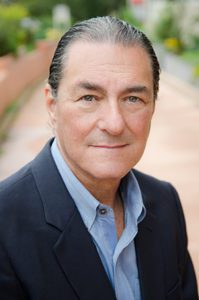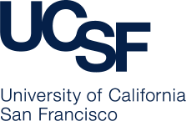August 2021
Reposted from the UCSF Department of Radiology and Biomedical Imaging blog
Exciting news from the 2021 Alzheimer’s Association International Conference (AAIC)! The UC San Francisco Department of Radiology and Biomedical Imaging is pleased to announce that Michael Weiner, MD, professor in residence, received the Henry Wisniewski Lifetime Achievement Award.
AAIC Lifetime Achievement Awards are named in honor of Henry Wisniewski, MD, PhD, Khalid Iqbal, PhD and Bengt Winblad, MD, PhD, co-founders of the International Conference on Alzheimer’s Disease, now known as the Alzheimer’s Association International Conference. They honor significant contributions to Alzheimer’s disease and dementia research, either through a single scientific discovery or a body of work.
 Dr. Weiner is principal investigator of the Alzheimer’s Disease Neuroimaging Initiative (ADNI), the largest observational study in the world concerning Alzheimer’s disease and former director of the Center for Imaging of Neurodegenerative Diseases (CIND) at the San Francisco Veterans Affairs Medical Center (SFVAMC). Over the past 25 years he has worked to develop and optimize the use of MRI, PET, and blood-based biomarker methods to diagnose Alzheimer’s disease (AD) and other neurodegenerative disorders. His research focuses on monitoring effects of treatment to slow progressions in AD and detecting AD early in patients who are not demented, but risk subsequent development of dementia.
Dr. Weiner is principal investigator of the Alzheimer’s Disease Neuroimaging Initiative (ADNI), the largest observational study in the world concerning Alzheimer’s disease and former director of the Center for Imaging of Neurodegenerative Diseases (CIND) at the San Francisco Veterans Affairs Medical Center (SFVAMC). Over the past 25 years he has worked to develop and optimize the use of MRI, PET, and blood-based biomarker methods to diagnose Alzheimer’s disease (AD) and other neurodegenerative disorders. His research focuses on monitoring effects of treatment to slow progressions in AD and detecting AD early in patients who are not demented, but risk subsequent development of dementia.
Dr. Weiner also launched the Brain Health Registry (BHR)− an internet-based registry with the overall goal of accelerating development of effective treatments for brain diseases. His overall research goals there are to participate in the development of effective treatments and methods for early detection of AD and other brain disorders. Recently he has focused on developing inexpensive, scalable, tools to identify normal elders at risk for cognitive decline and dementia, and to provide the BHR software to facilitate the work of other investigators.
In his award acceptance speech, Dr. Weiner thanked all ADNI core leaders, site PIs, study coordinators and study participants along with colleagues at SFVAMC and the 150 postdoctoral fellows and hundreds of research assistants he has worked with [and mentored] for the last 50 years.
“We all have much more to do,” he said. “We need to work together to do a much better job at enrolling people with low education, low incomes, more comorbidities, people from all communities and underrepresented populations to make our results more generalizable. This award renews my energy to continue the work. Thank you very much.”
Congratulations to Dr. Weiner on this well-deserved recognition.




